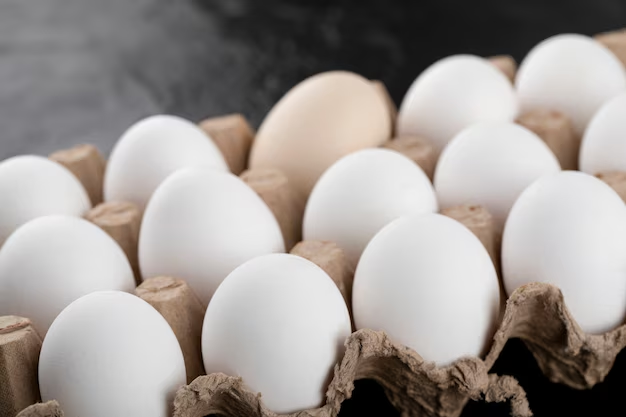How Long Do Eggs Stay Fresh in the Refrigerator?
Eggs are a staple in many households, cherished for their versatility and nutritional value. However, determining their shelf life can often lead to confusion. If you've ever wondered, "How long do eggs really last in the refrigerator?" you're not alone. Fortunately, understanding how to correctly store eggs and recognizing their freshness is easier than you might think.
Keeping Eggs Fresh: The Basics
Keeping eggs fresh centers around proper storage. When stored correctly, eggs maintain their quality and safety for a significant period. Generally, refrigerated eggs can last anywhere from three to five weeks. But what factors influence this timeframe?
Factors Influencing Egg Shelf Life
1. Storage Temperature: Eggs should be stored at a consistent temperature below 40°F (4°C). This helps prevent bacterial growth and prolong shelf life.
2. Packaging Date: Most egg cartons come with a sell-by or expiration date. While this is helpful, the packaging date, often seen as a Julian date on U.S. cartons, can provide a more accurate sense of freshness.
3. Carton Placement: Keeping the eggs in their original carton is crucial. The carton protects them from absorbing strong odors and flavors from other foods and provides cushioning to prevent damage.
Why Refrigeration Matters
Refrigeration significantly slows the growth of bacteria such as Salmonella, which can contaminate eggs. In countries like the United States, where eggs undergo washing and sanitization, refrigeration is essential to maintaining safety and quality. In contrast, some countries in Europe do not refrigerate eggs, as the natural protective coating—called the cuticle—is preserved, allowing for room temperature storage.
Determining Egg Freshness
Sometimes, fridge shelf life isn't explicit. Knowing how to test egg freshness can be reassuring.
The Float Test
A popular method for testing egg freshness is the float test. Fill a bowl with water and carefully place an egg inside. If it sinks and lays flat on its side, it's fresh. If it stands upright, it's older but still edible. If it floats, it’s best to discard it.
Visual and Smell Check
Before using an egg, crack it open on a clean plate. Fresh eggs will have a thick, viscous white and a rounded yolk. If the egg emits an unpleasant odor, regardless of appearance, it’s safest not to consume it.
Extending Egg Shelf Life
Egg storage doesn't stop at the refrigerator. Consider these tips to optimize an egg's shelf life:
1. Keep It Cool: Always return eggs to the fridge immediately after use.
2. Use the Right Spot: Store eggs on a middle shelf, where the temperature is more consistent compared to door storage.
3. Check Dates Regularly: While cartons often have expiration dates, rely more on the packing or expiry date to assess freshness better.
4. Inspect Regularly: Use eggs based on the dates and appearance to ensure safety.
Can You Freeze Eggs?
For those looking to extend the life of eggs even further, freezing is an option. However, it requires some preparation:
1. Whisked Eggs: Beat eggs until blended and store in a freezer-safe container.
2. Egg Components: Separate yolks and whites for individualized use. Whites freeze well with no preparation, but yolks can become gelatinous. Add a pinch of salt or sugar to beaten yolks to improve texture.
3. Storage Limits: Frozen eggs maintain quality for about a year. Be sure to label containers with the date of freezing.
Hard-Boiled vs. Raw Eggs
Storing hard-boiled eggs has different considerations. Once boiled and cooled, they should be refrigerated immediately. Hard-boiled eggs have a shorter shelf life than raw eggs, lasting about a week. This shorter span is due to the cooking process, which removes the protective cuticle naturally present on fresh eggs, opening them to more significant odor absorption and spoilage rate.
Frequently Asked Questions
How can you ensure you're buying the freshest eggs possible?
Buy Local: Purchase eggs from local farmers markets when possible, as they tend to sell fresher products.
Can using older eggs ever be a good thing?
Yes, older eggs are ideal for recipes requiring hard boiling, as they tend to peel easier than fresh eggs.
What’s the best way to label cartons for clarity?
Use a marker to note the purchase and expiration dates when you store eggs, helping prevent guesswork.
Quick Tips for Super Simple Egg Freshness
Here is a cheat sheet for maintaining egg freshness, perfect for posting on your fridge or pantry:
- ❄️ Store Eggs Properly: Always refrigerate eggs below 40°F (4°C).
- 🗓 Check Dates: Regularly note the carton date.
- 🥚 Conduct the Float Test: When in doubt, do the floating method for a freshness check.
- 🔍 Inspect Before Use: Visual and smell tests provide quick insight into egg safety.
- 📆 Freeze for Longevity: For extended use, consider freezing eggs correctly.
Concluding Thoughts
Understanding egg storage and recognizing freshness can minimize waste and ensure food safety. By implementing these habits and tips, you can make the most out of this versatile ingredient while ensuring the highest safety and taste standards. Eggs can indeed last a long time in the refrigerator when stored and handled with care. Depending on their use, these steps empower you to enjoy eggs at peak freshness, maximizing their culinary potential.

